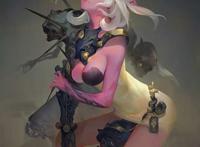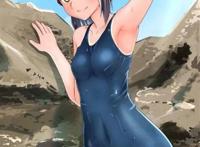疯狂山脉(IX)(6)

It was during that pause that we caught—simultaneously this time—the other odour ahead. Paradoxically, it was both a less frightful and a more frightful odour—less frightful intrinsically, but infinitely appalling in this place under the known circumstances . . . unless, of course, Gedney. . . . For the odour was the plain and familiar one of common petrol—every-day gasoline.
Our motivation after that is something I will leave to psychologists. We knew now that some terrible extension of the camp horrors must have crawled into this nighted burial-place of the aeons, hence could not doubt any longer the existence of nameless conditions—present or at least recent—just ahead. Yet in the end we did let sheer burning curiosity—or anxiety—or auto-hypnotism—or vague thoughts of responsibility toward Gedney—or what not—drive us on. Danforth whispered again of the print he thought he had seen at the alley-turning in the ruins above; and of the faint musical piping—potentially of tremendous significance in the light of Lake’s dissection report despite its close resemblance to the cave-mouth echoes of the windy peaks—which he thought he had shortly afterward half heard from unknown depths below. I, in my turn, whispered of how the camp was left—of what had disappeared, and of how the madness of a lone survivor might have conceived the inconceivable—a wild trip across the monstrous mountains and a descent into the unknown primal masonry—
 蓝湛疯狂的魏婴
蓝湛疯狂的魏婴


















